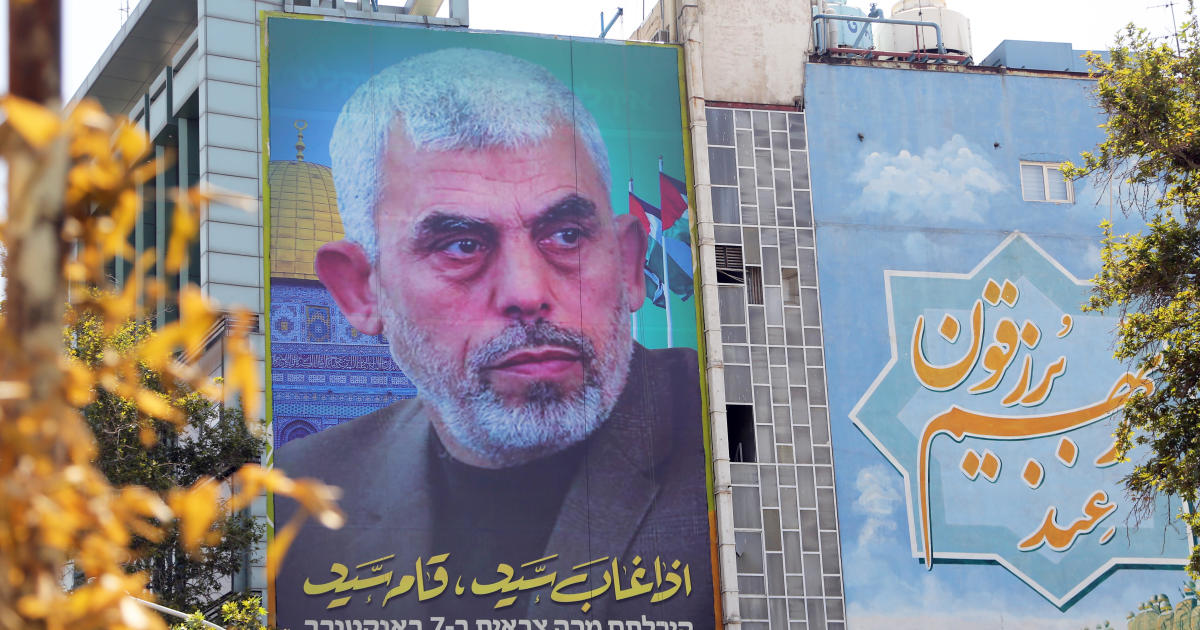Yahya Sinwar’s death marks a significant turning point in the ongoing Israel-Hamas conflict. His assassination by Israeli forces has been met with a mixture of celebration from Israel and its allies, and cautious skepticism from others concerned about its potential consequences. The event presents a complex situation with numerous potential implications for the future of the conflict and the region.
The Assassination of Yahya Sinwar
The Operation and Confirmation
Yahya Sinwar, the top Hamas leader in Gaza, was killed by Israeli forces during an operation in the southern Gaza Strip. The Israeli Defense Forces (IDF) initially provided limited details, stating only that Sinwar was killed during a routine patrol near Rafah. Subsequent briefings offered a more detailed account, claiming soldiers encountered and engaged three terrorists, one of whom escaped and was subsequently identified as Sinwar. Drone footage was reportedly used to confirm his identity after he fled to a building. According to IDF reports, Sinwar was found armed and possessing a significant sum of money. The Israeli government, including Prime Minister Benjamin Netanyahu, declared Sinwar’s death a major victory and a sign that Hamas’ rule in Gaza is ending.
International Reaction
The international community responded to Sinwar’s death with varying degrees of approval and concern. The United States, while stating they played no role in the operation itself, welcomed the news, citing Sinwar’s responsibility for the October 7th attacks. President Biden spoke with Prime Minister Netanyahu, and Secretary of State Blinken is planning a trip to Israel. However, other nations and international organizations expressed reservations about the ramifications of the assassination. Some criticized the action as potentially escalating the conflict and hindering peace efforts. There is also concern among human rights groups about potential retaliatory attacks and increased civilian casualties.
Sinwar’s Role and Legacy
Sinwar’s leadership in Hamas was marked by significant brutality and a strong ideological commitment to the group’s objectives. His role extended from organizing attacks to overseeing the group’s extensive infrastructure in Gaza. His decades-long involvement in the conflict, including his time spent in Israeli prisons, cemented his reputation as a key player and a major symbol of Palestinian resistance. Many view Sinwar’s assassination as the removal of a crucial strategist, capable of mobilizing fighters and rallying support within Hamas. However, the assassination also creates an opportunity for assessing the overall resilience and adaptability of Hamas.
The Aftermath and Potential Implications
The Future of Hamas
The death of a prominent figure like Sinwar raises many unanswered questions. The succession process and the consolidation of power within Hamas after Sinwar’s death remains unclear, adding to an atmosphere of uncertainty. There’s potential for internal power struggles within Hamas. While Israel views the assassination as crippling Hamas, others predict the organization’s resilience and subsequent reorganization. Potential responses from the movement could include a more intensified violent response or shifting strategic objectives.
The Hostage Situation and Prospects for Peace
One of the most pressing immediate concerns is the fate of the hostages still held by Hamas. Israel’s government had made a proposal to Sinwar, offering him and his family safe passage out of Gaza if Hamas ceded control. The assassination eliminates one significant player who could have made such a deal happen. However, the event also creates a power vacuum that potentially influences subsequent dealings. While some officials suggest Sinwar’s death may facilitate diplomatic efforts and secure a deal for the hostages, it’s far from certain. Without clear negotiations or leadership within Hamas, it is difficult to negotiate hostage releases.
Continued Instability in Gaza
Sinwar’s assassination, even as a potentially pivotal move in Israel’s strategy, might contribute to destabilizing an already vulnerable region. While it’s claimed this move would weaken Hamas’ ability to direct operations and control territories, some analysts predict the opposite. Increased retaliatory actions from various Palestinian militant factions are very likely, prolonging the humanitarian crisis affecting the population of Gaza. The ongoing war and unstable circumstances mean continued uncertainty.
Conclusion: A Turning Point or Escalation?
The death of Yahya Sinwar is undoubtedly a watershed moment in the Israel-Hamas conflict. The long-term effects remain uncertain. While Israel and the US present it as a victory that weakens Hamas and paves the way for peace, a significant amount of uncertainty clouds these claims. It is critical to closely monitor events that unfold to analyze if Sinwar’s death truly accelerates peace processes, or if it instead becomes a trigger for further escalations and continued violence in an already fragile region. The situation necessitates an urgent, collaborative international approach focusing on peaceful resolution, hostage release, and long-term humanitarian aid to Gaza.
Take Away Points:
- Yahya Sinwar’s assassination by Israeli forces is a major development in the Israel-Hamas conflict.
- The event has been met with mixed reactions, with celebration in Israel and concern from others about potential escalations.
- The succession within Hamas, the fate of hostages, and the overall stability of Gaza are all major uncertainties.
- The long-term consequences of Sinwar’s death remain unclear, with both potential for peace and continued conflict.
- An international, collaborative effort is needed to find a peaceful and humane resolution to this complex crisis.




